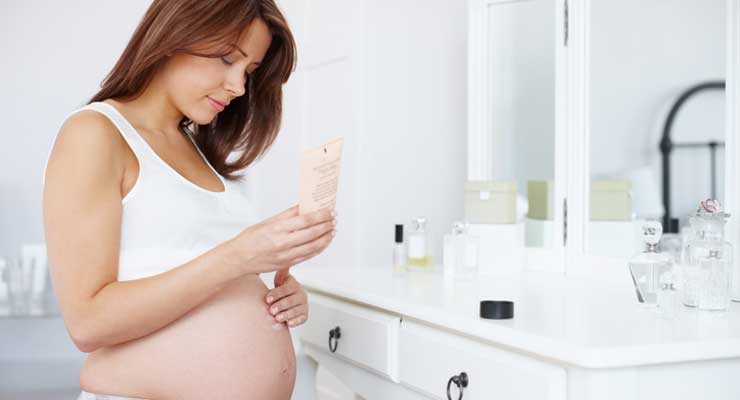While the excitement and anticipation you feel during pregnancy may leave little time for you to think about your skin, proper skin care techniques can prevent future problems. Some medications and skin preparations provide safe skin care during pregnancy while others pose a risk to the health of your developing baby. Caring for your skin, including treating both preexisting skin conditions and skin changes due to pregnancy, require caution.
Safe Skin Care During Pregnancy
Changing hormones can lead to skin changes during pregnancy. Many conditions unrelated to pregnancy can also affect your skin during the nine months leading up to the birth of your baby. Although certain medications and beauty products may help treat your skin conditions, not all products are safe for use during pregnancy. Discuss your skin care routine with your doctor, including your use of specific over-the-counter and prescription skin products and medications.
Conditions
In addition to creating immense changes within your body, pregnancy can bring about changes in your skin. Common skin conditions during pregnancy include acne, hyperpigmentation, spider veins and stretch marks. Some pregnant women develop pruritic urticarial papules, a condition that causes small, itchy bumps mainly on the abdomen, thighs, buttocks and breasts. While pregnancy won’t increase your risk of developing skin cancer, this condition can develop while you are expecting, requiring prompt medical treatment.
Precautions
Some drugs used to treat common skin disorders can be dangerous during pregnancy, according to the American Academy of Dermatology. For instance, oral cortisones, a common treatment for dermatitis, may increase your baby’s risk of being born with a cleft palette. High doses of antihistamines during the third trimester may cause uterine contractions and withdrawal symptoms in your newborn. The American Pregnancy Association warns against using Accutane, an acne medication, during pregnancy due to an increased risk of birth defects.
Safe Practices
During pregnancy, continue to make basic skin care part of your regular routine. Cleanse your skin with a gentle cleanser, rinsing well to remove all traces of oil and makeup residue. Use a sunscreen that has a sun protection factor of 15 or higher to help avoid developing areas of hyperpigmentation known as the “mask of pregnancy.” Use mild acne products, such as witch hazel or glycolic acid, while avoiding preparations that contain salicylic acid or topical retinoids. Consult your doctor if you notice any unusual skin condition, like a mole with uneven borders and variations in color.
Medical Care
Your doctor can help treat skin conditions and prescribe safe products for use during pregnancy, such as topical erythromycin for acne or topical steroids for dermatitis. Tell your dermatologist if you are pregnant or planning to get pregnant.





